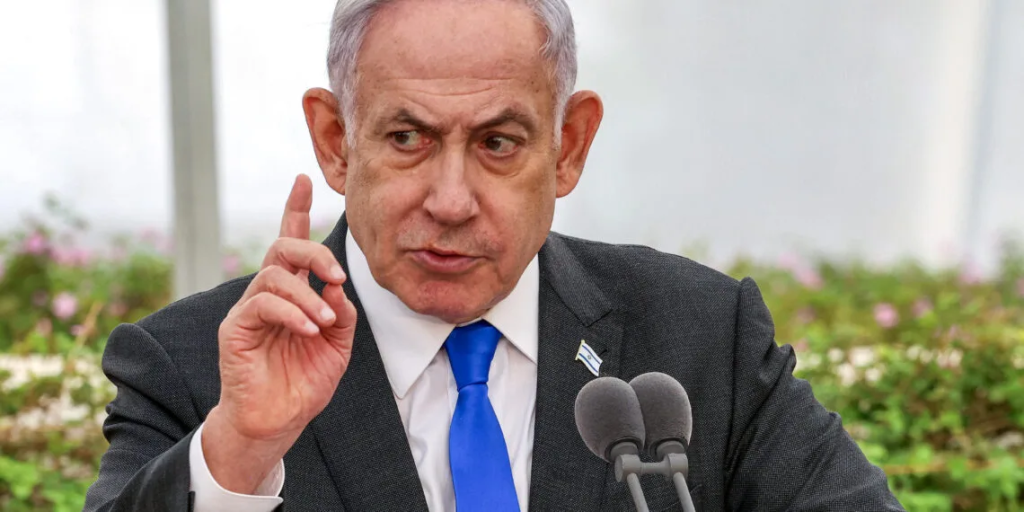
Israeli PM warns: “We will increasingly need to adapt to an economy with autarchic characteristics; we must develop our war industries here.” Arab countries call for sanctions against Tel Aviv after Doha attack
Brussels ŌĆō Benjamin Netanyahu is left with only his Stars and Stripes faithful ally. During a conference in Jerusalem on the sidelines of a meeting with US Secretary of State Marco Rubio, the Israeli PM admitted that Israel ŌĆ£finds itself in a kind of international isolationŌĆØ and that the Jewish state should ŌĆ£develop its war industriesŌĆØ and ŌĆ£the ability to produce what it needsŌĆØ within its borders.
If two years of carpet bombing of the civilian population in Gaza were not enough, the raid on Doha, capital of the Qatari mediator in the peace negotiations, has definitely thrown Tel Aviv into heavy diplomatic isolation. The next day, IsraelŌĆÖs ŌĆ£long-time friendŌĆØ, Ursula von der Leyen, announced that the European Commission will propose to partially suspend the association agreement with the Jewish state and impose sanctions against some ministers of NetanyahuŌĆÖs government. Today, the leaders of several Arab countries met in Doha for an emergency summit to decide on concrete measures following last weekŌĆÖs Israeli attack.
An attack that even upset the United States, which, together with Qatar, was trying to revive the already very fragile negotiations between Israel and Hamas to end the conflict. Rubio declared that Washington ŌĆ£will continue to encourage Doha to play a constructive role,ŌĆØ and criticised international efforts to recognise the State of Palestine (only┬Ātwo days ago┬Āat the UN General Assembly,┬Ā142 countries voted in favour of recognising an independent Palestinian state), branding them as ŌĆ£an obstacle to peace.ŌĆØ┬ĀOnly 10 countries opposed the UN resolution, including the United States, Viktor OrbanŌĆÖs Hungary, and Javier MileiŌĆÖs Argentina.
While several partners, including European ones, still support Israel by virtue of long-standing economic agreements, the United States is now the only one that has not publicly distanced itself from the criminal conduct of NetanyahuŌĆÖs governmentŌĆöin Gaza, but also in the West Bank and the entire region. The Israeli Prime MinisterŌĆöwho is subject to an arrest warrant issued by the International Criminal Court, to which 125 states are signatoriesŌĆöis now aware of this: ŌĆ£We will increasingly need to adapt to an economy with autarchic characteristics,ŌĆØ he admitted, focusing on the repercussions this could have on IsraelŌĆÖs incessant military activities.
Netanyahu warned the audience: ŌĆ£We may find ourselves in a situation where our war industries are blocked. We will have to develop the war industries here, not only research and development, but also the ability to produce what we need.ŌĆØ Already in mid-August, NorwayŌĆÖs two trillion dollar sovereign wealth fund announced that it had sold one-fifth of its assets in the country. Slovenia has suspended the arms trade with Israel, and Spain has announced that it will impose a ban on the ŌĆ£buying and selling of arms, ammunition and military equipmentŌĆØ and the ŌĆ£transit through Spanish ports of ships with fuel destined for the Israeli army.ŌĆØ Only a few countries, but they reveal a trend. If the EU were to suspend the trade association agreement, it would be a blow to Tel Aviv.
However, the PM rejects any responsibility, and indeedŌĆö according to the Times of IsraelŌĆöhe first pointed the finger at Muslim immigrants in Europe, who have ŌĆ£pushed governmentsŌĆØ in an anti-Israeli direction, and then at ŌĆ£certain statesŌĆØ that have allegedly orchestrated a campaign of hatred against the Jewish state. ŌĆ£One is China. The other is Qatar,ŌĆØ Netanyahu frontally attacked.
An ŌĆ£insane statement,ŌĆØ replied the Israeli opposition leader, Yair Lapid, according to whom the isolation is ŌĆ£the product of a wrong and failed policy of Netanyahu and his government,ŌĆØ which is ŌĆ£turning Israel into a third world country.ŌĆØ
